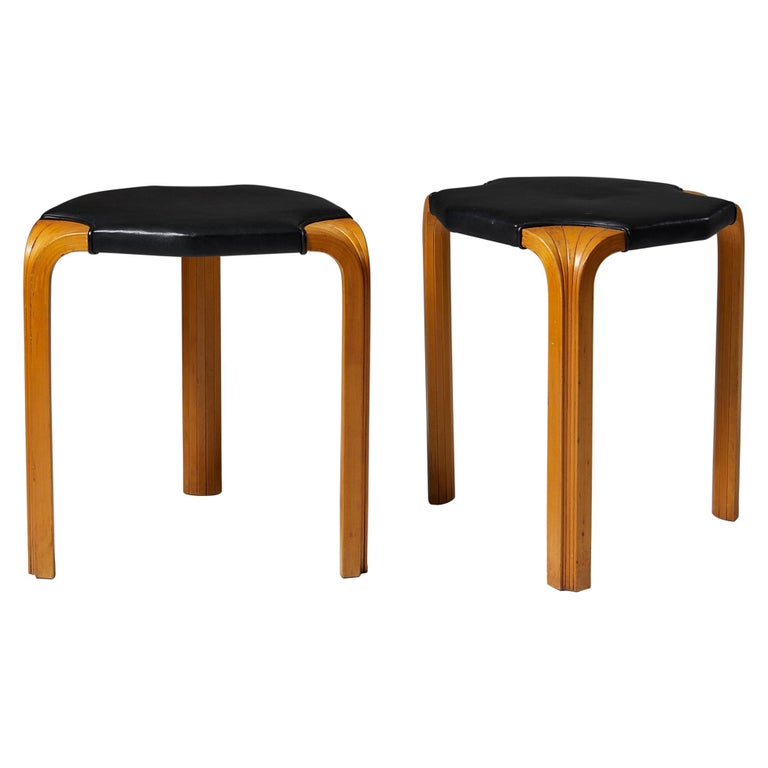
Functionalism in furniture design is a concept that has been around for almost a century. It emerged as a response to the growing needs of society, as modernization and industrialization disrupted traditional ways of living.
When it comes to furniture design, functionalism is about creating objects that are not just aesthetically pleasing but also serve a specific purpose. The idea is to make furniture that is simple, minimalist, and serves a function beyond just being visually appealing.
One of the most iconic examples of functionalism in furniture design is the Stool E60, designed by Alvar Aalto. Aalto developed the L-shaped legs' unique bending feature during the years 1932-1933. Stool 60's original design and manufacturing process are still applied today. Aalto's stool design is a perfect example of functionalism at its finest.
The simple yet elegant design of the stool has made it an instant classic. It is one of the most recognizable pieces of furniture in the world, with its clean lines, timeless design, and unparalleled functionality.
The history of functionalism in furniture design dates back to the early 20th century. It emerged as a response to the rapidly changing needs of society, as the world underwent an era of modernization and industrialization.
Modernism was the driving force behind functionalism in furniture design. The concept was to create furniture that was simple, functional, and aesthetically appealing. The idea was to create objects that were timeless, relevant, and practical, free from the decorative excesses of the past.
The functionalist approach to furniture design was also influenced by the rise of the Bauhaus school in Germany. The Bauhaus was a pioneering school of art, architecture, and design, which was founded by Walter Gropius in 1919.
The Bauhaus approach to design was characterized by its emphasis on functionality, simplicity, and practicality. The idea was to create objects that were not just visually appealing but also served a specific purpose.
The emergence of functionalism in furniture design was also influenced by the rise of mass production. Mass production made it possible to create furniture on a larger scale, making it more accessible and affordable.
The functionalist approach to furniture design had a significant impact on modern interior design. It led to the adoption of a minimalist approach to interiors, characterized by clean lines, neutral colors, and a focus on function over form.
Today, functionalism remains an essential element of furniture design. It has led to the creation of iconic pieces of furniture that are not only aesthetically appealing but also serve a specific purpose.
Uptop Furnishings Co., Ltd. is a company that specializes in designing, manufacturing, and exporting commercial furniture for restaurants, cafes, hotels, bars, and other commercial spaces. With over ten years of experience and research, the company has learned how to select high-quality materials for furniture, how to create a smart assembly system, and how to ensure stability.
In conclusion, functionalism in furniture design has had a significant impact on modern interior design. It has led to the creation of iconic pieces of furniture that are both aesthetically pleasing and functionally superior. With the constant evolution of technology and modernization, it is certain that functionalism will continue to shape the future of furniture design.
